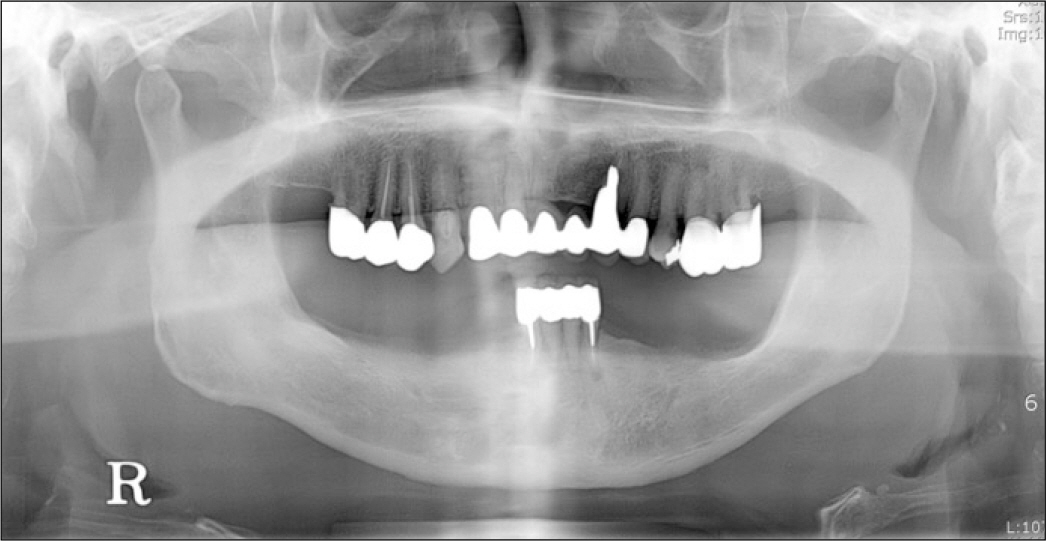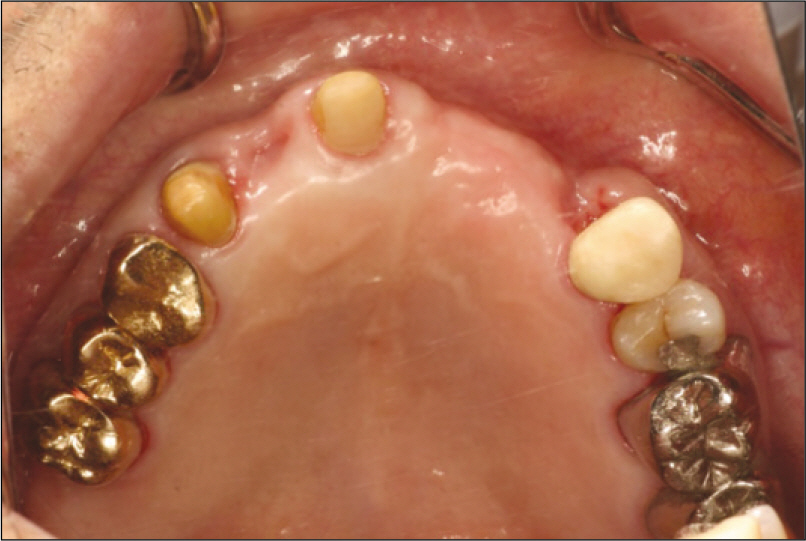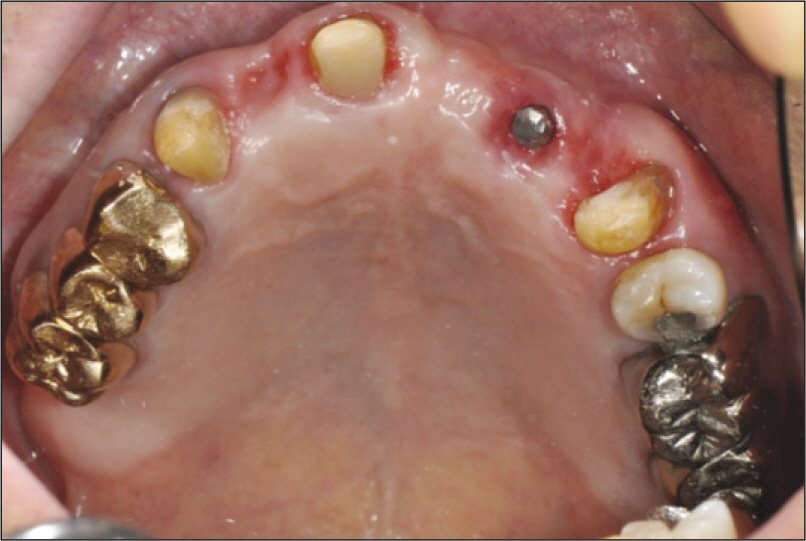J Korean Acad Prosthodont.
2013 Jul;51(3):221-225. 10.4047/jkap.2013.51.3.221.
Reinforcing the retention of provisional restoration using provisional implant on maxillary anterior region: clinical case report
- Affiliations
-
- 1Department of Prosthodontics, College of Dentistry, Yonsei University, Seoul, Korea. jaehoon115@yuhs.ac
- KMID: 2000172
- DOI: http://doi.org/10.4047/jkap.2013.51.3.221
Abstract
- Proper management of provisional prosthesis is key to success in prosthodontics. Provisional restoration on maxillary anterior missing area frequently come across a incident of falling off especially in patients with long span pontics and oval arch shape. This is because maxillary anterior teeth are more exposed to horizontal force than the posterior teeth and additional anterior cantilever effect will negatively affect to the retention of provisional prosthesis. Beside that maxillary anterior provisional prosthesis should provide proper incisal guidance during the mandibular functional movements. However occlusal contacts on the prosthesis in maximum intercuspal position are located on opposite side of fulcrum line of prosthesis which will cause removing force against the provisional prosthesis. This case report present that provisional implant prevent pre-described harmful effect on maxillary anterior fixed provisional prosthesis and provide comfort and satisfactory result during post-extraction healing period.
Keyword
MeSH Terms
Figure
Reference
-
1.Rosenstiel SF., Land MF., Fujimoto J. Contemporary Fixed Prosthodontics. 4th ed. St. Louis: Mosby Inc.;2006.2.Krennmair G., Krainho¨fner M., Weinla¨nder M., Piehslinger E. Provisional implants for immediate restoration of partially edentulous jaws: a clinical study. Int J Oral Maxillofac Implants. 2008. 23:717–25.3.Santosa RE. Provisional restoration options in implant dentistry. Aust Dent J. 2007. 52:234–42. quiz 254.4.de Almeida EO., Filho HG., Goiatto MC. The use of transitional implants to support provisional prostheses during the healing phase: a literature review. Quintessence Int. 2011. 42:19–24.5.Jivraj S., Chee W. Transitioning patients from teeth to implants. Br Dent J. 2006. 201:699–708.
Article6.Jivraj S., Reshad M., Chee WW. Transitioning patients from teeth to implants utilizing fixed restorations. J Calif Dent Assoc. 2008. 36:599–606.7.Ohkubo C., Kobayashi M., Suzuki Y., Sato J., Hosoi T., Kurtz KS. Evaluation of transitional implant stabilized overdentures: a case series report. J Oral Rehabil. 2006. 33:416–22.
Article8.Grassi R., Rebaudi A., Trisi P., Covani U., Barone A. Bone loss around immediately loaded transitional implants: histologic and mi-crocomputed tomographic analysis—a case report. Int J Periodontics Restorative Dent. 2012. 32:e195–203.
- Full Text Links
- Actions
-
Cited
- CITED
-
- Close
- Share
- Similar articles
-
- Aesthetic prosthetic restoration through immediate implant placement and provisional restoration in the maxillary anterior region using a digital guide
- Outcome Evaluation of an Immediately Placed Maxillary Anterior Single-Tooth Implant Using Objective Esthetic Criteria: Case Report
- Digital intraoral impression for immediate provisional restoration of maxillary single implant: A case report
- Gingival Recontouring with Provisional Restoration in the Mandibular Anterior One-piece Mini-implant: A Case Report
- Esthetic restoration in continuous maxillary anterior area using immediate implant placement: A case report








